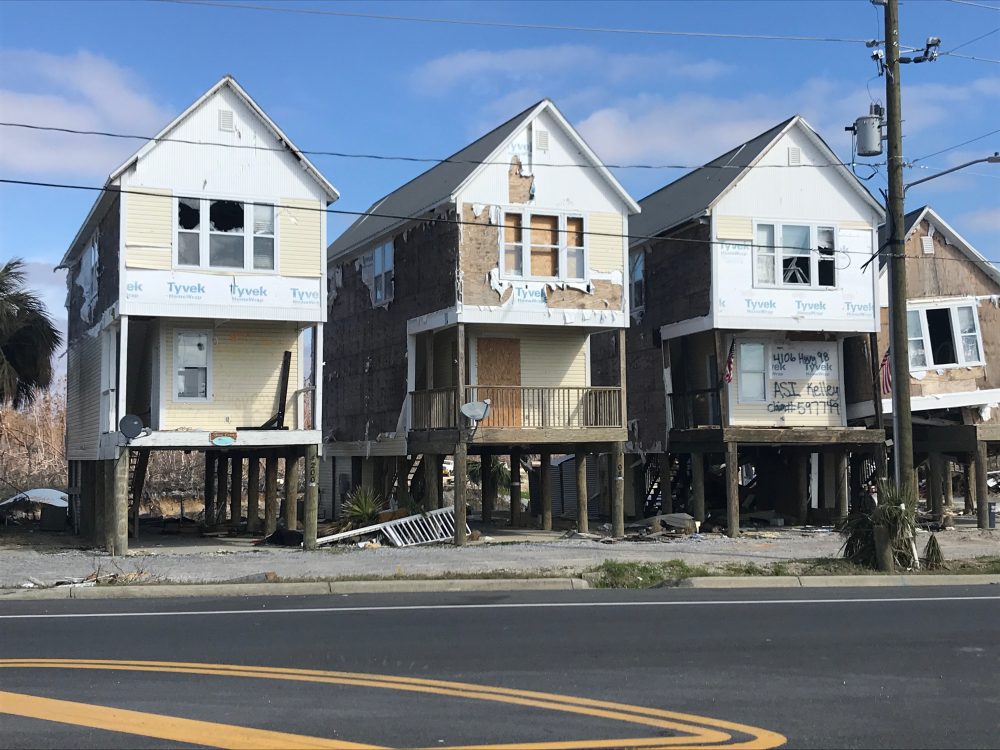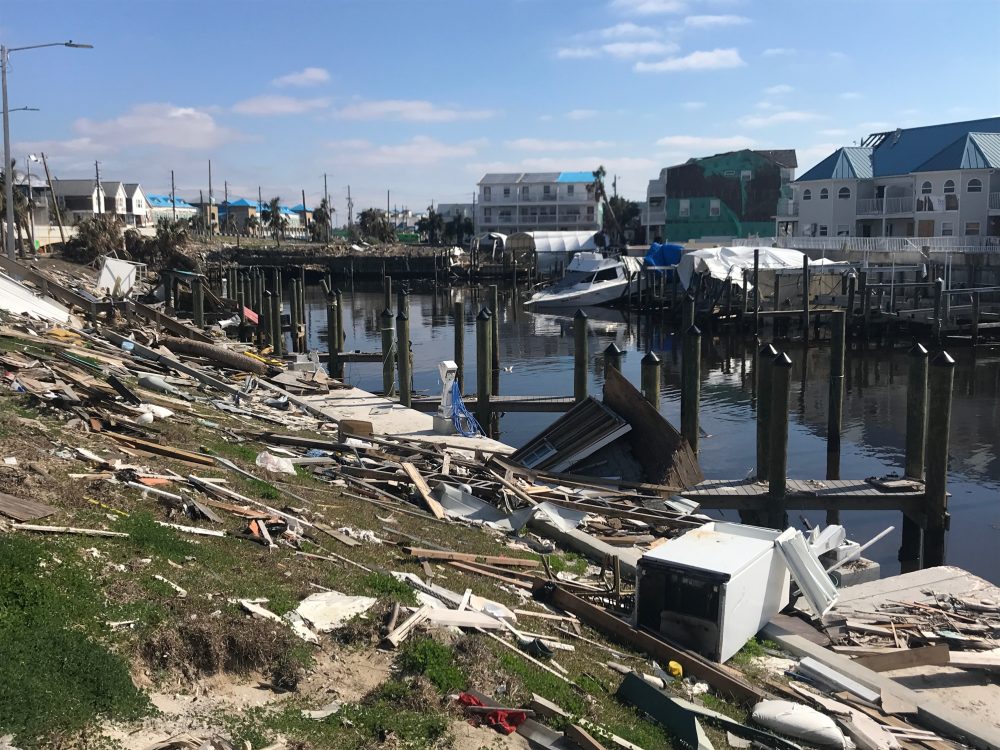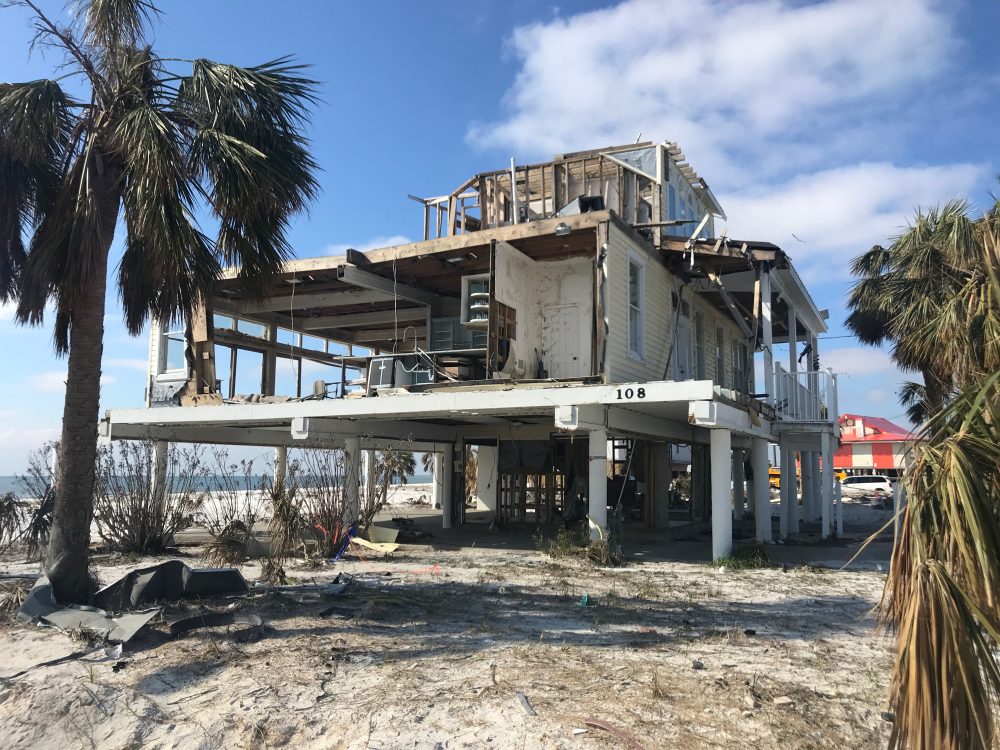People Recovering from the “Forgotten Storms” Need Our Help
More than six months after Hurricanes Florence and Michael, communities across North Carolina and Florida continue to rebuild their lives and their homes. People I have spoken to recently in both affected areas all share the same sentiment, “Things are moving, but not fast enough.” This reinforced for me how much we need to help. […]

More than six months after Hurricanes Florence and Michael, communities across North Carolina and Florida continue to rebuild their lives and their homes. People I have spoken to recently in both affected areas all share the same sentiment, “Things are moving, but not fast enough.” This reinforced for me how much we need to help. Many call these two hurricanes “the forgotten storms.” We can’t let that be the case. Our 2018 Atlantic Hurricane Season Recovery Fund has raised more than $1.8 million – but we still need to do more.
The common theme is housing – and the numerous obstacles individuals are facing as they try to reclaim and rebuild their homes in communities where there were issues with affordable housing before the hurricane. Others find themselves trapped between assistance programs they are not eligible for and insurance policies that do not pay out claims large enough to rebuild their homes to the current building codes and standards for more disaster resilient homes. It makes me wonder, how can we be serious about building back stronger and more resilient communities when people aren’t even provided with enough assistance to restore their homes to their pre-disaster state?
During my recent visit to North Carolina, I met with many of the Hurricane Florence recovery stakeholders working on assisting some of the over 40 counties that were designated by FEMA for public or individual assistance. Again, the “not-fast-enough refrain.” I was presented with stories of people still living in damaged homes with mold growth or those unable to rebuild because of lack – lack of financial resources and/or lack contractors and volunteers.
Full recovery will be a tremendous task for the people of North Carolina; it was reassuring to meet with and listen to some of the many key government, philanthropic and nonprofit partners. I gained an even greater appreciation for their diligence toward helping families and communities recover. The North Carolina Inclusive Disaster Recovery Alliance is one of those key recovery stakeholders working across the state to convene and coordinate recovery plans and activities, while working with government to highlight and address the obstacles communities and individuals are facing during the recovery process. While attending one of their member meetings, I was impressed to see the cross-section of attendees representing nonprofits, philanthropy and government all sharing information and coordinating their work and resources. Such a terrific example of multi-sector collaboration which is needed for effective long-term recovery planning and implementation.
As I returned from North Carolina, I was met with six-month reports from another 2018 Atlantic hurricane season event, Hurricane Michael. In January, I had witnessed how devastated the communities were; things are not much improved. Many of these reports highlighted the slow recovery process taking place there and the continued challenges of getting people back into safe, stronger homes. People are still trying to repair, replace or reconstruct homes with limited support or resources while their coping mechanisms are steadily decreasing after so many months of dealing with the aftermath of the disaster.
Philanthropy, and the public, must play a larger role in supporting communities in North Carolina and Florida affected by the 2018 Atlantic hurricane season, as well as other communities affected by major disasters. Help us do more. The CDP 2018 Atlantic Hurricane Season Recovery Fund will support individual and community recovery efforts for North Carolina and Florida. The Fund will focus on supporting recovery within the housing sector and populations with special needs (vulnerable populations, youth and older adults). These two areas were identified as critical recovery sectors with significant gaps that need additional resources and support.
To learn more about the CDP 2018 Atlantic Hurricane Season Recovery Fund, or if you know of a local recovery group working within housing or with special needs populations that should be invited to apply for funding, please feel free to reach out to me at brennan.banks@disasterphilanthropy.org.
More like this

Announcing 10 New Recovery Grants for North Carolina and Florida
